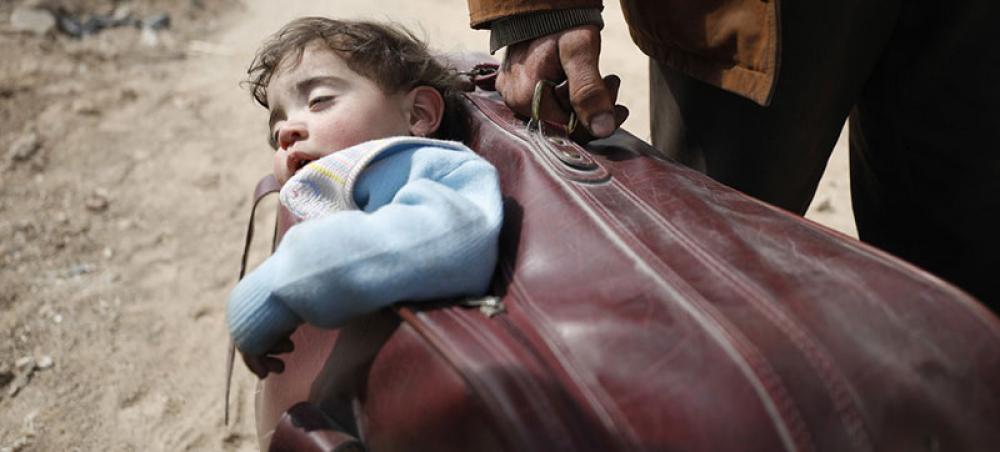Just Earth News | @justearthnews | 25 Sep 2021

Image:UNICEF/UN0185401/Sanadiki
New York: A decade of war in Syria has left more than 350,200 people dead, High Commissioner Michelle Bachelet told the Human Rights Council on Friday, noting that this total was an “under-count of the actual number of killings”.
These are a result of a war that spiralled out of the 2011 uprising against President Bashar al-Assad's rule.
Based on the “rigorous work” of the UN Office for the Coordination of Humanitarian Affairs (OCHA), she said that the tally, which includes civilians and combatants, is based on “strict methodology” requiring the deceased’s full name, the date of death, and location of the body.
People behind the numbers
In the first official update on the death toll since 2014, Ms. Bachelet informed the Council that more than one in 13 of those who died due to conflict, was a woman – 26,727 in all – and almost one in 13 was a child – a grim total of 27,126 young lives lost.
The Governorate of Aleppo saw the greatest number of documented killings, with 51,731 named individuals.
Other heavy death tolls were recorded in Rural Damascus, 47,483; Homs, 40,986; Idlib, 33,271; Hama, 31,993; and Tartus, 31,369.
“Behind each recorded death was a human being, born free and equal, in dignity and rights”, reminded the High Commissioner.
“We must always make victims’ stories visible, both individually and collectively, because the injustice and horror of each of these deaths should compel us to action.”
More accountability needed
Her office, OHCHR, is processing information on alleged perpetrators, recording victims civilian or combatant status and the type of weapons used, Ms. Bachelet said.
To provide a more complete picture of the scale and impact of the conflict, the UN agency has also established statistical estimation techniques to account for missing data.
The High Commissioner explained that documenting deaths complements efforts to account for missing people and that her office has been helping the families of the missing, to engage with international human rights mechanisms.
Given the vast number of those missing in Syria, Ms. Bachelet echoed her call for an independent mechanism, with a strong international mandate, to “clarify the fate and whereabouts of missing people; identify human remains; and provide support to relatives”.
No end to the violence
Today, the daily lives of the Syrian people remain “scarred by unimaginable suffering”, the UN human rights chief said, adding that they have endured a decade of conflict, face deepening economic crisis and struggle with the impacts of COVID-19.
Extensive destruction of infrastructure has significantly affected the realization of essential economic and social rights, and there is still no end to the violence.
“It is incumbent upon us all to listen to the voices of Syria's survivors and victims, and to the stories of those who have now fallen silent for ever”, the High Commissioner concluded.